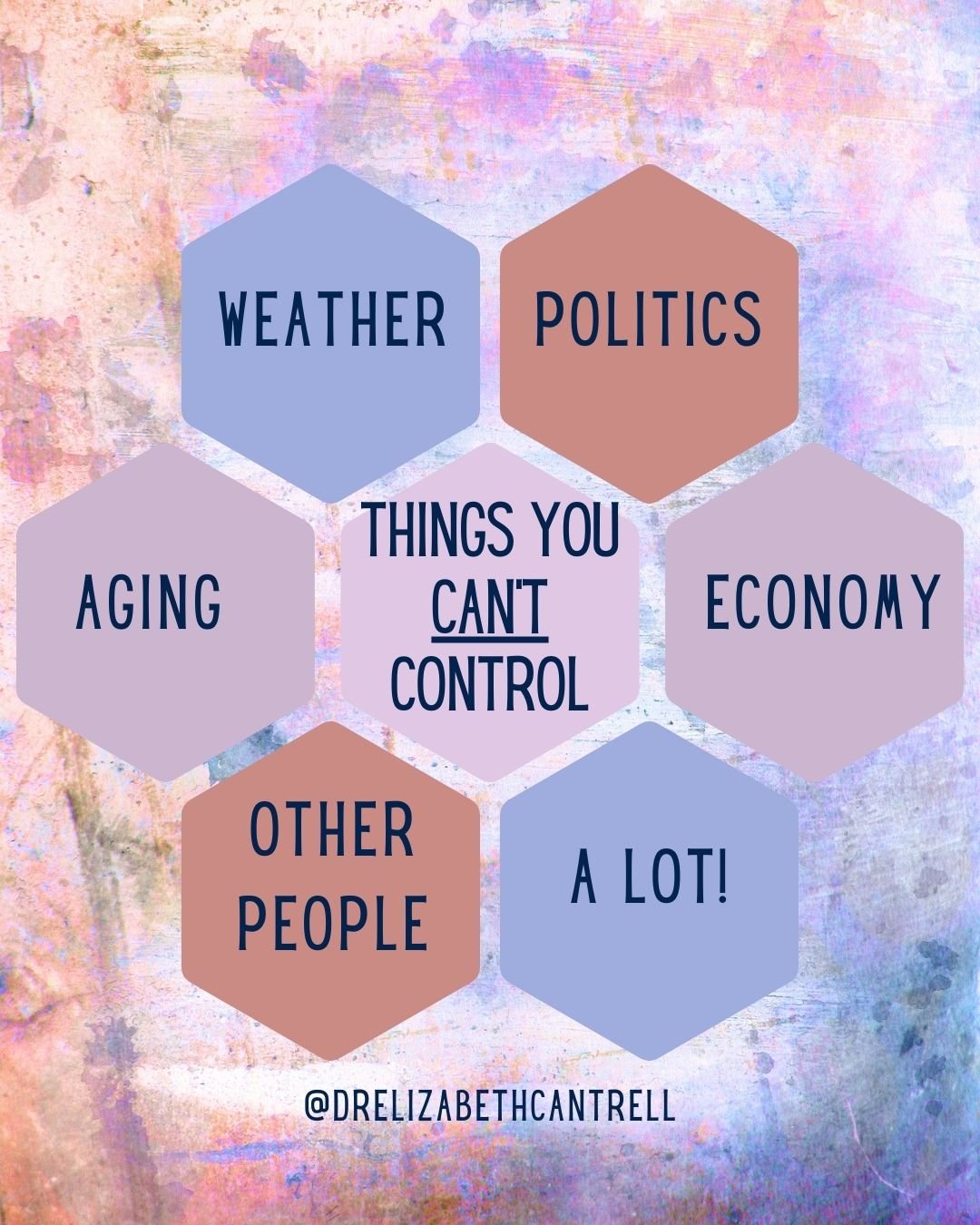Stress often comes from trying to control the uncontrollable.
So, next time stress creeps in, try this:
1️⃣ Notice you feel stressed.
Just pause and recognize what’s going on.
2️⃣ Ask: Is this inside or outside my control?
If it’s outside your control, try to let it go, but still move on to step 3.
3️⃣ Make a plan.
Choose a few things you CAN do (even if the actual stressor is outside your control).
✔ Can you go for a walk?
✔ Can you listen to music?
✔ Can you make a phone call?
✔ Can you research a solution?
Training your brain to respond to stress in a healthier way takes some practice, but it’s worth it.
Share this with a friend who can relate 💖





